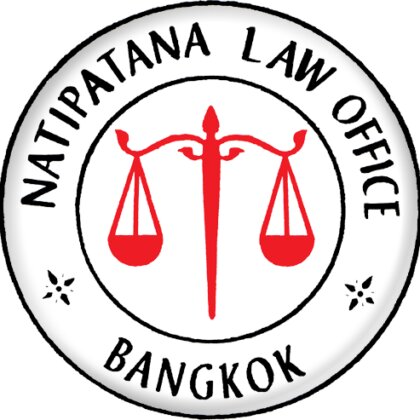Best Employment & Labor Lawyers in Phuket
Share your needs with us, get contacted by law firms.
Free. Takes 2 min.
List of the best lawyers in Phuket, Thailand
Thailand Employment & Labor Legal Articles
Browse our 3 legal articles about Employment & Labor in Thailand written by expert lawyers.
- Thailand Wrongful Dismissal: Fired Without Warning Guide
- Thailand is an employee-protective jurisdiction: most employees are covered by the Labour Protection Act and cannot be dismissed at will without correct procedure and payments. Written employment contracts are strongly recommended, but even informal or verbal arrangements can create full employee rights under Thai law. Key money items include minimum... Read more →
- Looking Ahead to Proposed Thai Labor Law Changes in 2025
- The Thai government is considering significant legislative reforms for 2025, with the goal of improving employee welfare and creating a more equitable labor market. Firstly, let’s take a brief look at Thailand’s current labor laws, then we will go into the potential future changes.What are the Current Labor Laws in... Read more →
- Thailand Employment Law: Essentials for Hiring and Retaining Talent
- In a world that is constantly changing, Thailand has become a very attractive place for companies who want to grow or start up in the lively South East Asia area. However, entering this beautiful landscape requires great knowledge of Thai employment laws which are a maze that can confuse even... Read more →
About Employment & Labor Law in Phuket, Thailand
Phuket, Thailand, is not only a popular tourist destination but also a vibrant place for local and foreign employees. The employment and labor laws in Phuket are governed by the Labor Protection Act, the Labor Relations Act, the Social Security Act, and other relevant regulations. These laws cover various aspects such as working conditions, employee rights, wage laws, termination procedures, and workplace safety. Understanding these regulations is crucial for both employers and employees to ensure compliance and protect their rights.
Why You May Need a Lawyer
There are several scenarios in which you might require legal assistance related to employment and labor laws in Phuket:
- Contract Disputes: Disagreements over employment contracts, terms of employment, or non-compete clauses.
- Unfair Dismissal: If you believe you have been terminated without just cause or in a manner that contravenes the law.
- Work Permit Issues: For expatriates, navigating work permit requirements and residency regulations.
- Workplace Harassment or Discrimination: Legal guidance on dealing with harassment or discrimination in the workplace.
- Wage Disputes: Issues related to unpaid wages or unauthorized deductions.
- Health and Safety Violations: Addressing unsafe working conditions or accidents at work.
- Labor Union Matters: Legal matters related to union membership or activities.
Local Laws Overview
Employment and labor laws in Phuket are structured to safeguard both the rights of the employees and the interests of the employers. Key aspects include:
- Working Hours: Standard working hours are eight hours per day and not more than 48 hours a week, with specific rules for different types of work.
- Minimum Wage: The minimum wage is subject to periodic updates and may vary by region, so it is important to stay informed about the current rates.
- Overtime Pay: Employees are entitled to overtime pay at specified rates if they work beyond standard hours.
- Leave Entitlements: Employees are eligible for various types of leave, including annual leave, maternity leave, and sick leave.
- Termination of Employment: The process and grounds for termination must comply with the Labor Protection Act, including the need for justified reasons and notice periods.
- Social Security Benefits: Employees and employers contribute to the social security fund, which covers benefits like healthcare and pensions.
Frequently Asked Questions
What should I do if my employer doesn't pay my wages on time?
If your employer fails to pay your wages on time, you are entitled to file a complaint with the Department of Labor Protection and Welfare. Legal action may be necessary if the issue is not resolved.
Am I eligible for overtime pay, and how is it calculated?
Yes, if you work beyond the standard working hours, you are entitled to overtime pay. Overtime pay rates vary depending on whether the extra hours are on a workday or a holiday.
Can my employer terminate my contract without notice?
Your employer cannot terminate your contract without giving proper notice or severance unless there is a breach of contract or other justified reasons as outlined by Thai labor laws.
What is the procedure for filing a complaint against workplace harassment?
You should report incidents of harassment to your HR department or directly to the labor authorities. If the issue persists, consider seeking legal advice to explore further actions.
As a foreign worker, what are my rights regarding employment in Phuket?
Foreign workers are protected under the same labor laws as Thai nationals. However, you must also comply with immigration and work permit regulations specific to expatriates.
How can I ensure my employment contract is legally sound?
Have a legal professional review your contract to ensure it is in compliance with Thai employment laws and covers all necessary provisions for your protection.
What should I know about annual leave entitlements in Phuket?
Employees are typically entitled to a minimum of six days of paid annual leave after one year of employment. Some employers may offer more, depending on company policy.
Are there legal protections for whistleblowers in Phuket?
Yes, Thai labor laws protect employees who report illegal activities or misconduct within their companies from retaliation. Legal advice should be sought to understand your specific situation.
What actions can I take if I suffer an injury at work?
If you suffer a work-related injury, report it immediately to your employer and seek medical attention. You may also file a claim with the Office of Social Security for compensation.
How do I join a labor union, and what are my rights as a member?
You can join a labor union by approaching the union that represents your sector or industry. Members have rights to collective bargaining, representation in disputes, and protection against unfair labor practices.
Additional Resources
For further assistance, you may contact the following organizations:
- Department of Labor Protection and Welfare: Offers support for labor disputes and issues.
- Office of Social Security: Manages social security benefits and claims.
- Immigration Bureau of Thailand: Provides guidance on work permits and visas for foreign workers.
- Local Labor Unions: Many industries have specific unions that offer additional support to workers.
Next Steps
If you find yourself needing legal assistance, consider the following steps:
- Identify the nature of your legal issue and gather all relevant documents and information.
- Research or seek recommendations for qualified employment and labor lawyers based in Phuket.
- Contact potential lawyers for a consultation to discuss your case and understand their expertise and fees.
- Engage a lawyer who has the right experience and understanding of your specific issue to represent you.
Dealing with employment and labor matters can be complex, and obtaining professional legal help can ensure your rights are adequately protected.
Lawzana helps you find the best lawyers and law firms in Phuket through a curated and pre-screened list of qualified legal professionals. Our platform offers rankings and detailed profiles of attorneys and law firms, allowing you to compare based on practice areas, including Employment & Labor, experience, and client feedback.
Each profile includes a description of the firm's areas of practice, client reviews, team members and partners, year of establishment, spoken languages, office locations, contact information, social media presence, and any published articles or resources. Most firms on our platform speak English and are experienced in both local and international legal matters.
Get a quote from top-rated law firms in Phuket, Thailand — quickly, securely, and without unnecessary hassle.
Disclaimer:
The information provided on this page is for general informational purposes only and does not constitute legal advice. While we strive to ensure the accuracy and relevance of the content, legal information may change over time, and interpretations of the law can vary. You should always consult with a qualified legal professional for advice specific to your situation.
We disclaim all liability for actions taken or not taken based on the content of this page. If you believe any information is incorrect or outdated, please contact us, and we will review and update it where appropriate.
Browse employment & labor law firms by service in Phuket, Thailand
Phuket, Thailand Attorneys in related practice areas.













